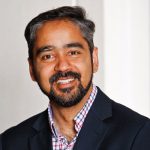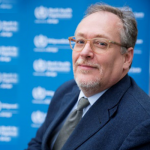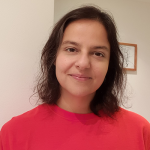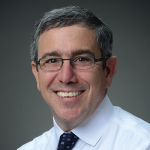
Course Information
- Audience: Public Health Professionals
- Format: Recorded Webinar
- Date/Time: Wednesday, February 8, 2023, 1:00 PM – 2:30 PM ET
- Price: Free
- Length: 1.5 hours
- Credential(s) eligible for contact hours: Sponsored by New England Public Health Training Center (NEPHTC), a designated provider of continuing education contact hours (CECH) in health education by the National Commission for Health Education Credentialing, Inc. This program is designated for Certified Health Education Specialists (CHES) and/or Master Certified Health Education Specialists (MCHES) to receive up to 1.5 total Category I continuing education contact hours. Maximum advanced-level continuing education contact hours are 0. Provider ID: 1131137 Event ID: SS1131137_MAH.If you are not seeking CHES/MCHES contact hours, if you complete the post-test and evaluation, you will receive a Certificate of Completion. The Certificate will include the length of the course.
- Competencies: Policy Development and Program Planning Skills
- Learning Level: Awareness
- Companion Trainings: None
- Supplemental materials:None
- Pre-requisites: None
About this Recording
Population migration is one of the central demographic shifts shaping the world around us. This conversation will feature several contributing authors from Migration and Health, an edited anthology that aims to advance our understanding of the causes and consequences of human migration.
What you'll learn
At the end of the recording, participants will be able to:
- Describe the 5 core functions of the World Health Organization Health and Migration Programme.
- Outline the importance of access to health care in the migration process and the barriers to access to health care.
- Examine the relationship between labor migration and mental health.
- Explain the transnational impacts of migration and the policy implications that limit eligibility for health care.
Moderator

Muhammad Zaman
Director, Center on Forced Displacement, Boston University
Santino Severoni
Director, Health and Migration Programme, Office of the Deputy Director-General, WHO
Marie Nørredam
Professor, Department of Public Health, University of Copenhagen
Ayesha Kadir
Senior Humanitarian Health Advisor, Save the Children
Joshua Breslau
Senior Behavioral and Social Scientist, RAND Corporation
Sana Loue
Professor, Bioethics, Case Western Reserve University School of Medicine
Dr. Zaman is a Howard Hughes Medical Institute Professor of Biomedical Engineering and Global Health at Boston University. He also serves as the Director of Boston University’s Center on Forced Displacement. He received his master’s and P.h.D from the University of Chicago. In addition to five books and over 130 peer-reviewed research articles, Professor Zaman has written extensively on innovation, refugee and global health in newspapers around the world. His newspaper columns have appeared in over 30 countries and have been translated into eight languages. He has won numerous awards for his teaching and research, the most recent being Guggenheim Fellowship (2020) for his work on antibiotic resistance in refugee camps.
Subject Matter Experts
Dr. Severoni is Director of the global Health and Migration Programme, Office of the Deputy Director-General, at the World Health Organization Headquarters in Geneva. He is a medical doctor, health economist, epidemiologist, and experienced systems manager. He has over 24 years of experience as an international senior technical advisor and executive, having worked for WHO, governments, NGOs, and foundations in Eastern Africa, the Balkans, Central Asia, and Europe. He has dedicated his work to global health, focusing on health sector reforms, health systems strengthening, health diplomacy, aid coordination/effectiveness, and management of complex emergencies. He previously served as a WHO Representative in Albania and Tajikistan. Since 2011 he has been leading the WHO EURO work on health and migration. In 2019 he was appointed EURO Special Representative on health & migration and Director a.i. on health systems and public health. In June 2020, he was appointed to his current role to lead the WHO global work on health and migration.
Marie Nørredam is Professor with special responsibilities in the Section of Health Services Research at the University of Copenhagen Department of Public Health. Professor Nørredam’s scientific main interest lies within the field of equity and health, migration and health, and health services research. A particular focus is on the impact of ethnicity and migration on health conditions and access to health care; vulnerable migrant groups; mental health and chronic diseases among migrants.
Ayesha Kadir is a paediatrician and Senior Humanitarian Health Advisor for Save the Children. She works in clinical care, public health research, health policy, and advocacy. Her clinical work is in paediatric emergency medicine and social paediatrics in Europe and in humanitarian settings. Her research, advocacy and policy work focuses on the effects of migration, armed conflict, and other forms of violence on children and families, and in finding effective ways to protect and promote children’s and families’ health, wellbeing, and rights. Dr. Kadir has worked in east, west, and southern Africa, the Middle East, Haiti, western and eastern Europe, and the United States. She has worked with international NGOs, universities, governments and the World Health Organization before starting her current role with Save the Children.
Joshua Breslau is a senior behavioral and social scientist at the RAND Corporation whose work focuses on social and cultural influences on psychiatric disorders and their treatment. An anthropologist and epidemiologist with over two decades of research experience, Breslau’s research examines racial/ethnic disparities in risk for psychiatric disorders and treatment use, life course consequences of psychiatric disorders, and impacts of policy on treatment for people with behavioral health conditions. Breslau’s work has been continuously supported by grants from the National Institutes of Health for over 15 years. He is currently principal investigator of NIH-funded studies of integrated primary and mental health care for adults with serious mental illness and policy impacts on racial/ethnic disparities in behavioral health service use. He also leads the RAND team in the national evaluation of the Certified Community Behavioral Health Centers demonstration project. Breslau has published in leading peer-reviewed journals in psychiatry, public health, pediatrics, and health policy, and he is a fellow and council member of the American Psychopathological Association. He earned his Ph.D. in anthropology from Harvard University and his Sc.D. in epidemiology from Harvard School of Public Health.
Sana Loue, JD, PhD, MPH, MSSA, MA, LISW-S, CST-T, AVT is a professor in the Department of Bioethics at Case Western Reserve University (CWRU) School of Medicine in Cleveland, Ohio. She holds secondary appointments in Psychiatry and Global Health at the School of Medicine and in Social Work at the Mandel School of Applied Social Sciences at CWRU. Dr. Loue practiced immigration law for 14 years prior to joining the faculty of CWRU, focusing primarily on deportation defense and health-related immigration. Dr. Loue served as the School of Medicine’s inaugural Vice Dean for Faculty Development and Diversity from 2012 to 2020. Dr. Loue holds degrees in law (JD), epidemiology (PhD), medical anthropology (PhD), social work (MSSA), secondary education (MA), public health (MPH), theology (MA), and history (MA). Her past research in both the domestic and international contexts has focused on HIV risk and prevention, severe mental illness, family violence, and research ethics. Her current research addresses the interplay between religion, society, and bioethics; the integration of cultural humility into clinical care and research settings; and past and current formulations of eugenics. She has authored or edited more than 30 books and more than 100 peer-reviewed journal articles. Loue has been serving as the editor-in-chief of the Journal of Immigrant and Minority Health (previously titled the Journal of Immigrant Health) since its inception.
Registration
Select the Enroll Me button below to register for this recording. If you have any trouble accessing the recording, contact support@nephtc.org.
Acknowledgement: This project is supported by the Health Resources and Services Administration (HRSA) of the U.S. Department of Health and Human Services (HHS) as part of award 2 UB6HP31685‐05‐00 “Public Health Training Centers.” The contents are those of the author(s) and do not necessarily represent the official views of, nor an endorsement, by HRSA, HHS or the U.S. Government.



